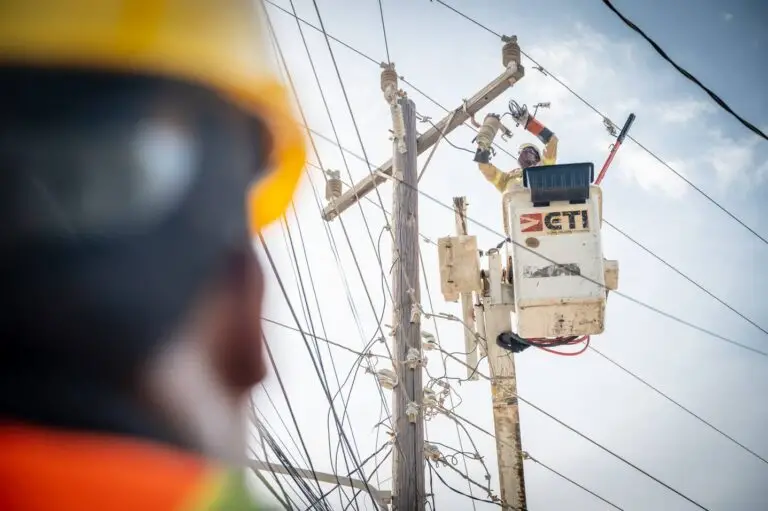In response to the damage caused by Hurricane Beryl, the Office of Utilities Regulation (OUR) has announced plans to intensify its oversight of maintenance activities carried out by the Jamaica Public Service Company (JPS). This move comes after observations suggested that some aspects of JPS’s infrastructure upkeep, particularly vegetation management, may have been inadequate.
Courtney Francis, the OUR’s Manager for Engineering and Technical Analysis, highlighted that vegetation encroachment on power lines and equipment was a primary concern. Such issues are supposed to be routinely managed under JPS’s license and as stipulated by the Electricity Act. Speaking at the Jamaica Observer Press Club, Francis emphasized the importance of JPS adhering to its annual generation maintenance schedule, which spans three years, as well as submitting regular transmission maintenance plans. These plans include routine upkeep and significant overhauls of power plants.
Francis stressed that JPS should intensify efforts to manage vegetation, particularly before the hurricane season, to mitigate the risk of power disruptions. “One of the major problems that we have observed on the system is vegetation impingement… and equipment failures,” he noted. To address these issues, the OUR has incorporated capital projects to allocate funds for such maintenance needs, monitoring JPS’s adherence to these allocations over the past few years.
However, Francis expressed concerns about JPS not always following through on its maintenance commitments. “Sometimes there are problems because even when they have proposed to do a certain stretch in terms of distribution lines, after the approval they might not have delivered based on what has been proposed,” he said. To ensure compliance, the OUR plans to increase its surveillance efforts, including the potential use of drone technology to enhance monitoring capabilities without the need for constant physical presence.
Francis also expressed dissatisfaction with the overall maintenance structure of JPS, as reflected in its annual reliability metrics, which form part of the OUR’s performance-based price-setting mechanism. Since 2021, JPS has faced penalties totaling $450 million for failing to meet reliability standards, with vegetation infringement being a significant factor. Despite these penalties, Francis reiterated that the OUR’s primary goal is to drive performance improvement, not to impose fines.
Over the past three to five years, the OUR’s assessment has revealed that certain rural areas have consistently underperformed in terms of reliability, falling among the ten worst-performing regions. However, JPS has indicated a renewed focus on addressing these problematic areas. Francis pointed out that reliability tends to be better in urban centers like Kingston and St. Andrew, where customer density is higher, compared to rural areas like St. Elizabeth. He emphasized the need for equitable service quality, noting, “Everybody pays the same tariff, so the expectation is that you should get a similar service.”
Ansord Hewitt, OUR Director General, also addressed challenges faced by JPS, particularly regarding the availability of maintenance crews. He recalled discussions with JPS leadership, including former president Steve Berberich and current chairman Damian Obiglio, about commitments to improve maintenance practices. Despite some progress in implementing these plans, the impact of Hurricane Beryl indicated that more efforts were needed.
Hewitt suggested that the issue of vegetation management might require policy intervention to clearly define and enforce responsibilities among JPS, private property owners, and local government authorities. “There’s a question of JPS coming onto your property to cut trees and there are limits on that, but there is a responsibility as a property owner to cut trees,” Hewitt explained. He called for a reevaluation of these responsibilities and enforcement mechanisms as part of the lessons learned from Hurricane Beryl.
The OUR’s decision to ramp up monitoring of JPS maintenance works reflects its commitment to ensuring a more resilient and reliable power supply for all Jamaicans, particularly in light of increasing natural disaster risks.






